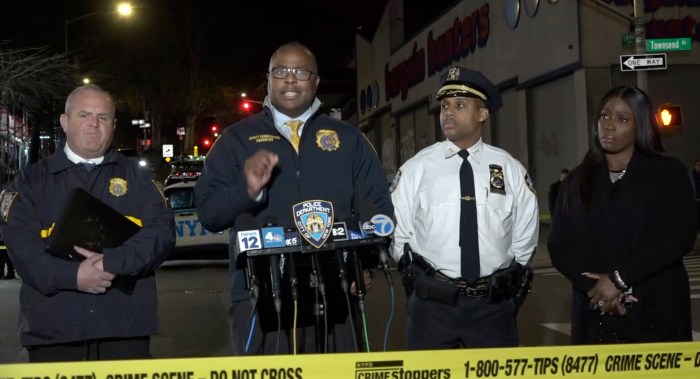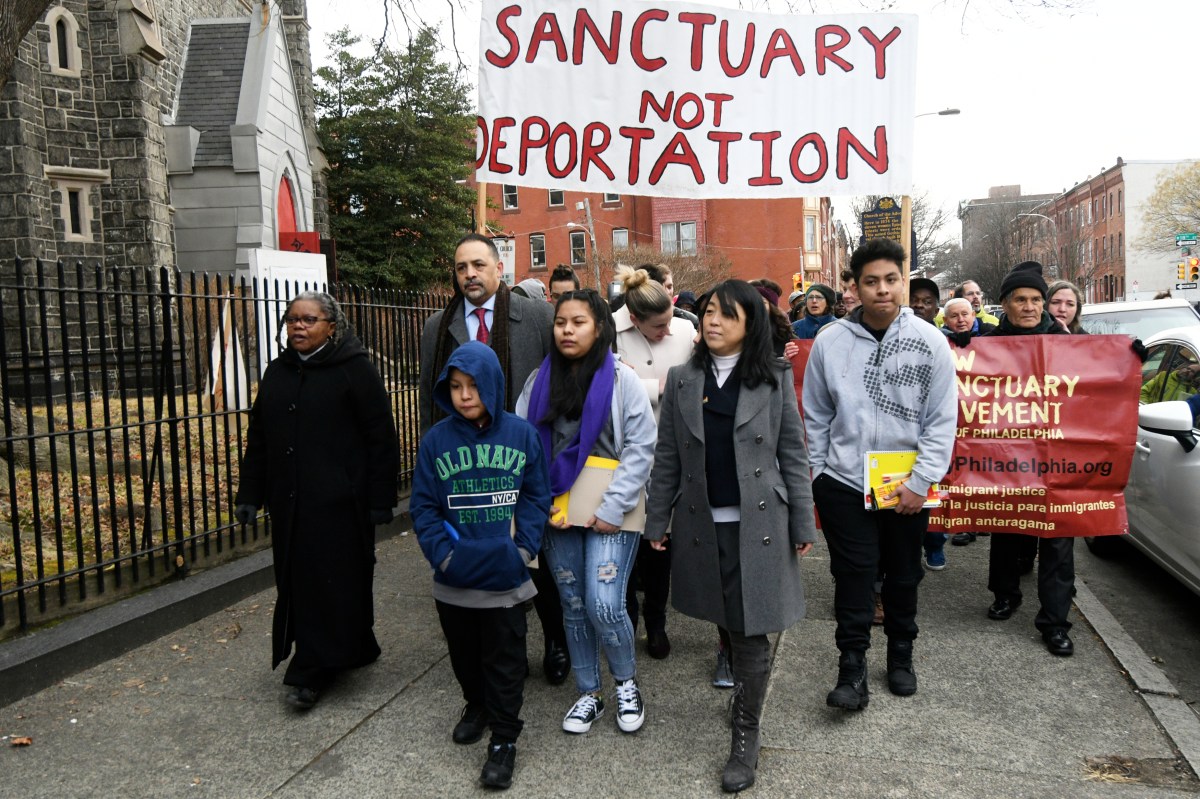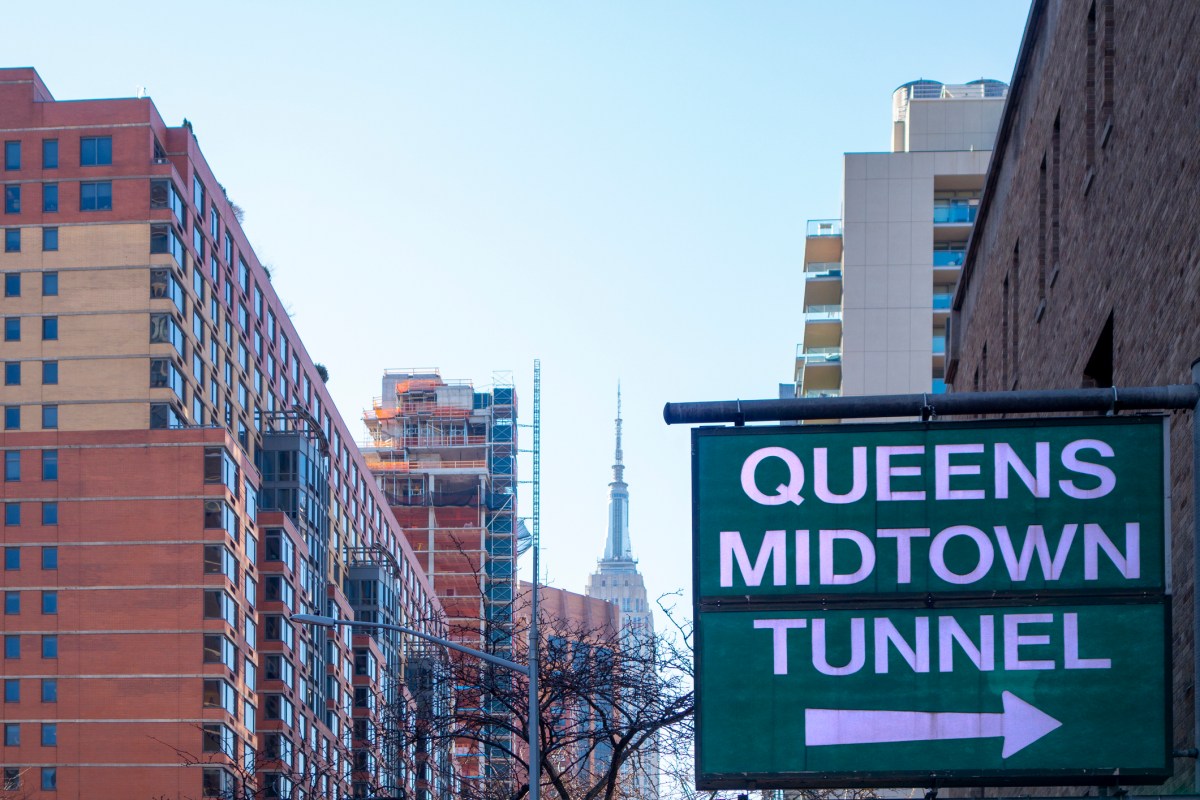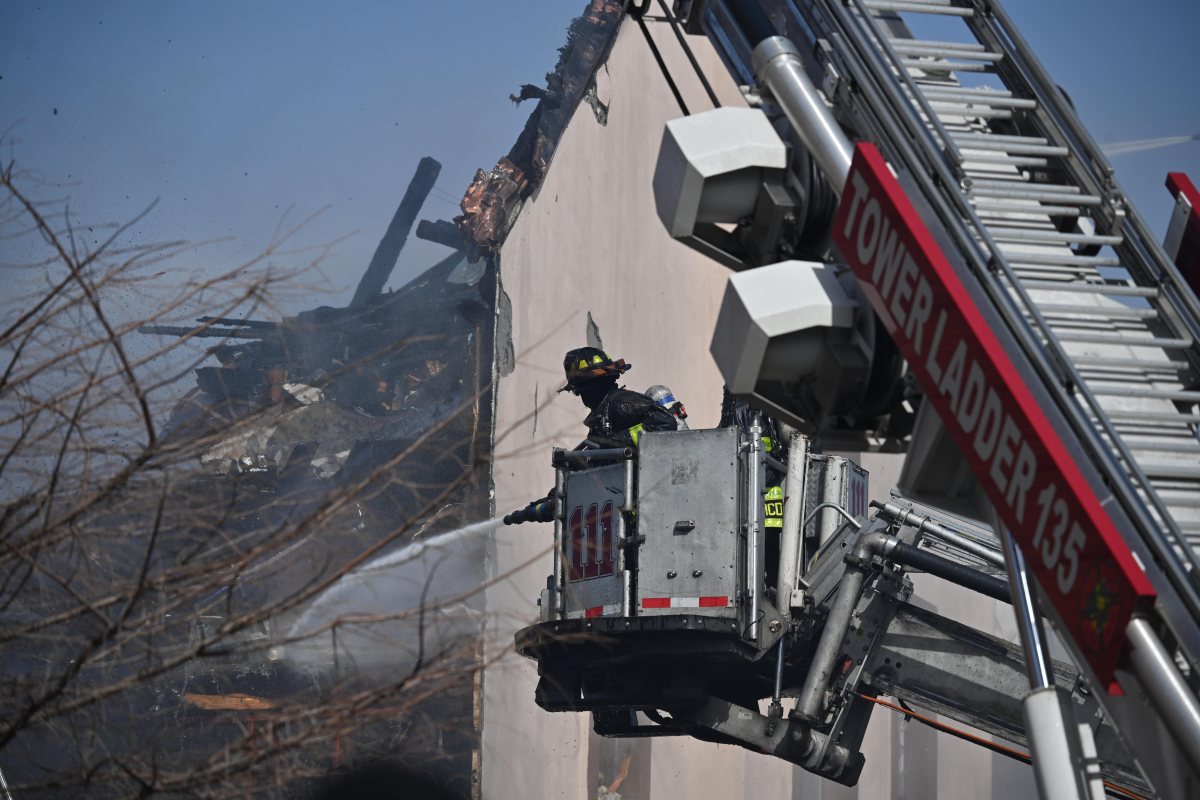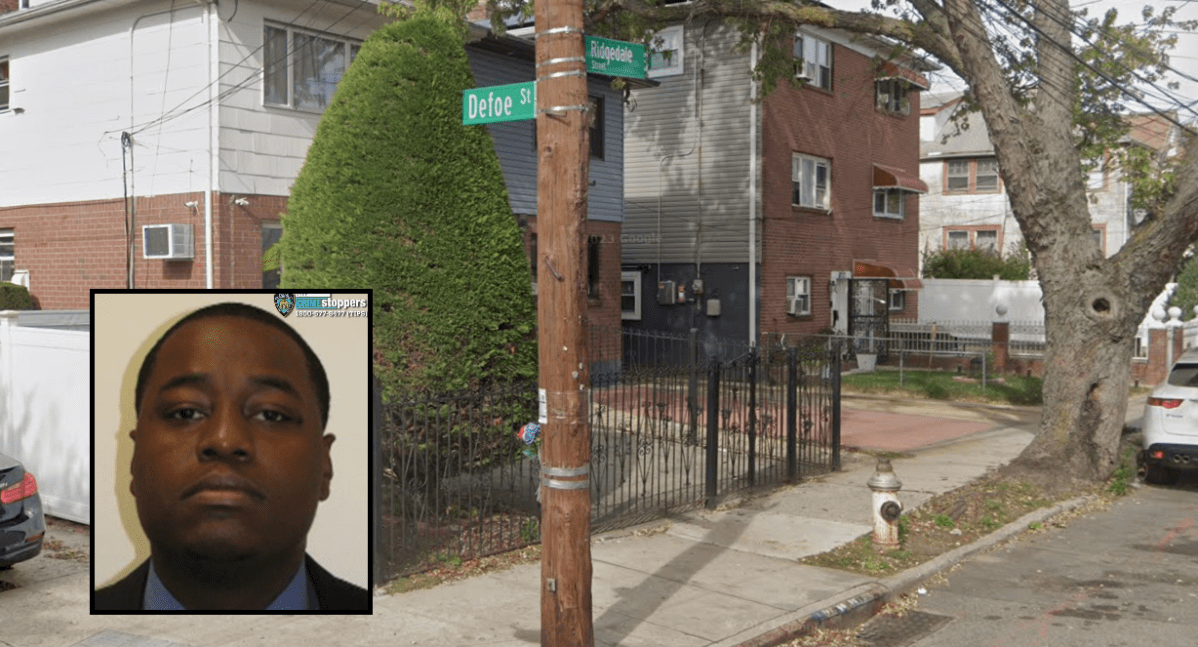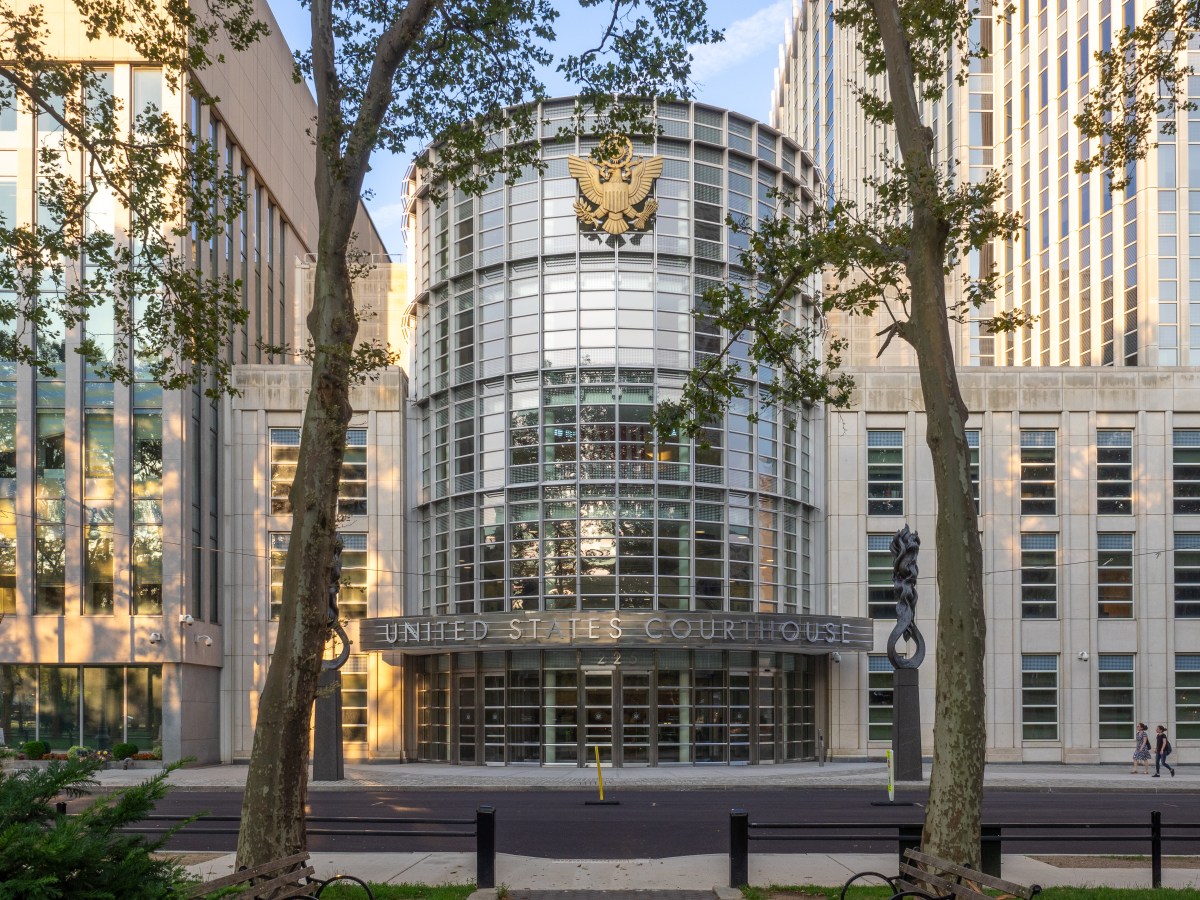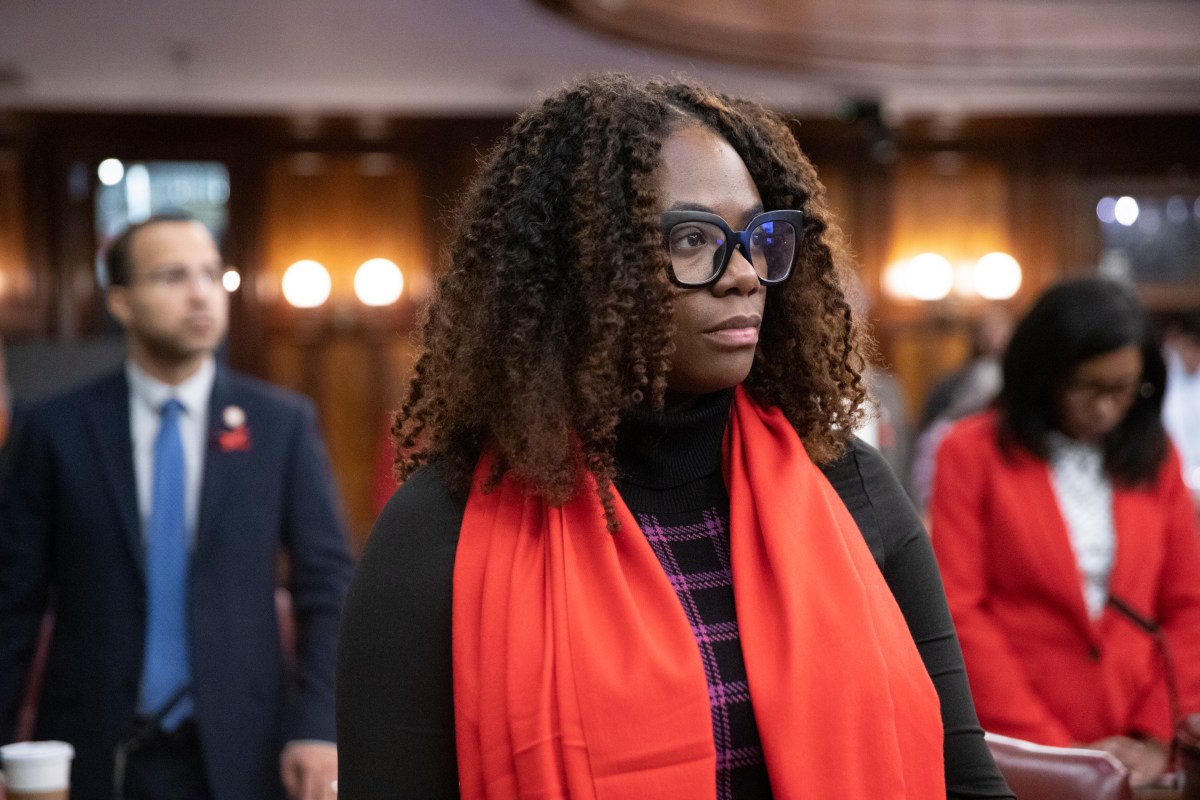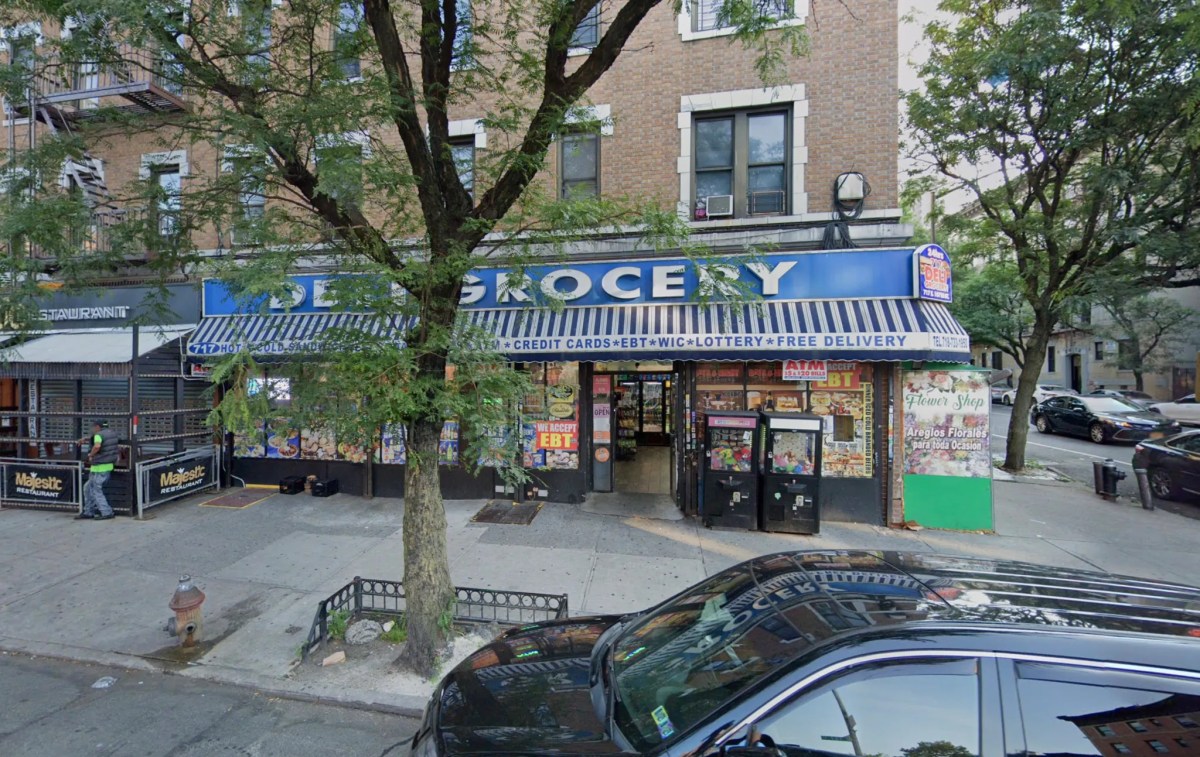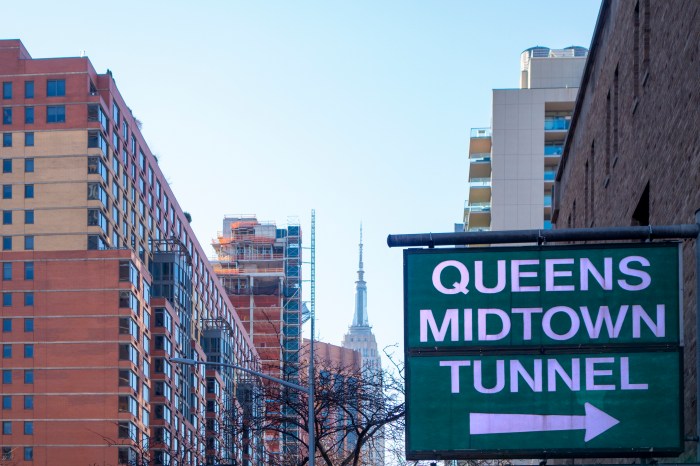Mayor Eric Adams on Wednesday proposed the creation of a new city agency dedicated to regulating the micro-mobility industry around commercial delivery on e-bikes, scooters, and other transit modes, aiming for government to catch up to a sector where tech has far outpaced attempts at regulation.
The micro-delivery sector has grown substantially in the city over the past decade, and today there are tens of thousands of workers zooming around the city on e-bikes and scooters delivering restaurant-prepared food, groceries, and packages to New Yorkers’ front doors. But the industry’s growth has outpaced the government’s ability to regulate it, with issues arising around labor rights, infrastructure, and public safety.
Currently, regulation of the sector is split between the Department of Consumer & Worker Protection (DCWP) and the Department of Transportation (DOT). Hizzoner wants to combine the efforts related to the sector into either a new agency or a sub-agency within an existing one. The mayor proposed calling this agency the Department of Sustainable Delivery.
“New Yorkers welcome the future of transit and new electronic technologies, but we cannot have mopeds speeding down our sidewalks and forcing people to jump out of the way,” the mayor said in his State of the City speech Wednesday. “We must also protect the drivers and delivery workers who show up for New Yorkers at all times of day and night, all kinds of weather. That is why we are in discussion with the City Council to create the Department of Sustainable Delivery, a first-in-the-nation entity that will regulate new forms of delivery transit and ensure their safety.”
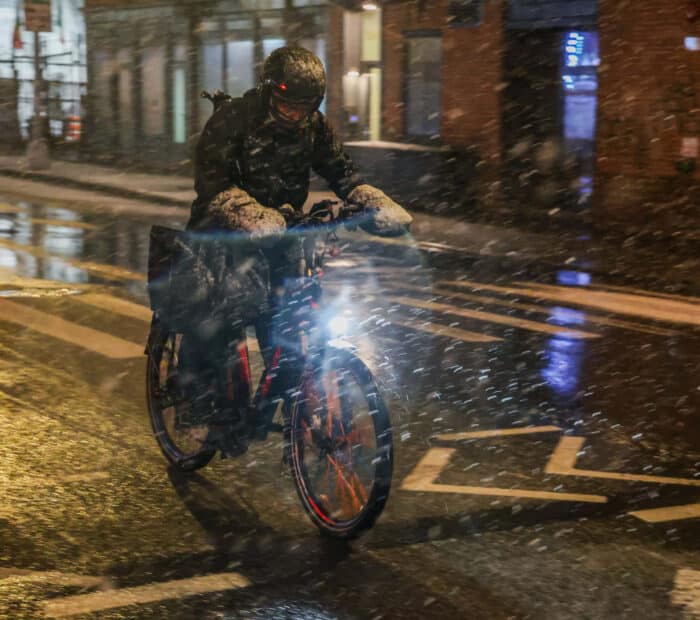
The mayor cannot create a new agency out of whole cloth. The administration will have to negotiate and fact-find with the City Council, and determine whether the call warrants a whole new city agency or a sub-agency.
But in an interview with amNewYork Metro, Meera Joshi, the Deputy Mayor for Operations, said the effort aims to fill a “void” that exists around several disparate but interrelated issues arising from the industry.
The administration wants the new agency to combine all those efforts together, from working to prevent out-of-control fires caused by e-bikes’ lithium-ion batteries to minimum wage regulations for delivery workers to potential licensing to operate an e-bike, to more mundane things like weight and size requirements for the emerging cargo bike delivery sector.
“We want to fill that void and pull everything together and create a front door for companies in the micro delivery space and for the workers in that space as well,” Joshi said. “And really to give some clarity on what trips are happening, where they’re happening. This is important to model what infrastructure needs are in the city going forward.”
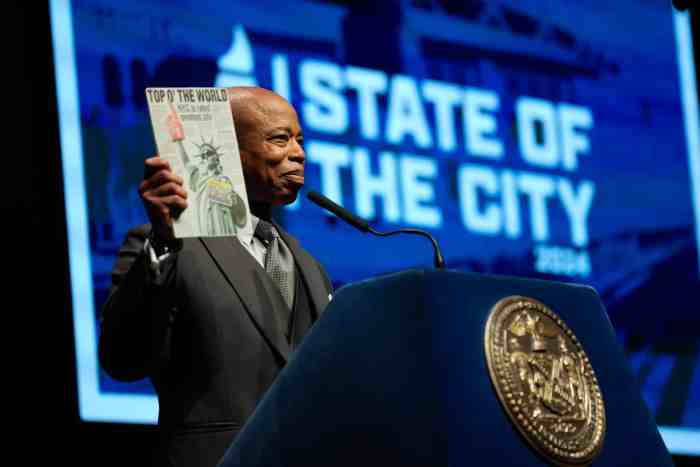
Joshi, who previously headed the Taxi & Limousine Commission, noted that “everybody in New York is feeling more chaos in our bike lanes and our streets.”
Delivering food by bike in the city is a dangerous job; in a 2021 report, Los Deliveristas Unidos — the collective representing the mostly-immigrant, low-wage food courier workforce — found that 16 delivery workers died on the job across the five boroughs in just a single year.
Last year, 28 cyclists — including deliveristas, commuters, and recreational riders — lost their lives on New York City streets.
Meanwhile, many New Yorkers have become more anxious crossing the street for fear of being hit by cyclists, some of whom zip through bike lanes at impressive speeds (and often disregard traffic rules) en route to pick up or deliver food to someone’s door. Couriers, who are independent contractors, are incentivized through delivery apps like Uber Eats, Doordash, and Grubhub to take on a high volume of orders and complete them in as short a time as possible.
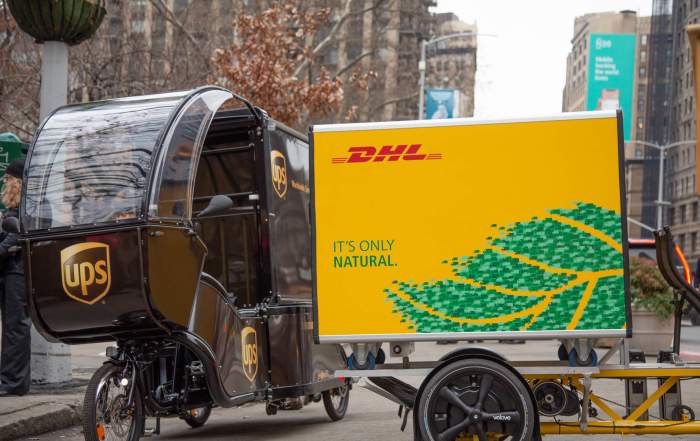
While the vast majority of pedestrian deaths and injuries are caused by cars and trucks, fatal collisions between e-bikes and pedestrians have made headlines this year, as in the case of 69-year-old teacher Priscilla Loke in Chinatown, who was fatally struck by a hit-and-run electric Citi Bike rider who ultimately only received a ticket.
“If you change the culture around delivery and the conduct around delivery, you really set the pace for all users. Because they take up a large portion of users of our bike lanes now,” said Joshi.
“If we continue with the chaos, we could also have a backlash to this movement,” she continued, contending such a development would be bad for the economy and the workforce.

Besides potential licensing requirements, Joshi said the new agency could explore carrots and sticks to ensure companies’ fleets maintain safe driving behaviors within bike lanes. She noted that the city’s bike lanes are an asset which are used for free, unlike in most industries where companies rent commercial space.
Also, under the potential purview of a new agency would be issues related to lithium-ion battery safety, like a newly enacted program allowing delivery workers to exchange unsafe batteries for certified ones. There’s also the question of physical spaces facilitating a more sustainable industry, like rest stations for deliveristas and “microhubs” to transfer e-commerce delivery to sustainable modes for the last-mile of shipping.
And of course, there’s wages and worker protection. In September, the app-based delivery giants Uber Eats, Doordash, and Grubhub lost a lawsuit where they were attempting to overturn the city’s new minimum wage law for food delivery workers, paving the way for the $17.96 wage floor to go into effect. In 2025, the wage is set to increase to $19.96.
After the new wage law went into effect, Uber and Doordash responded by removing the ability for customers to leave a tip at checkout, which workers said severely limited their tip income and saw as retaliation for the minimum wage law lobbied for by the Deliveristas.
Ligia Guallpa, executive director of the Workers Justice Project, the parent group of Los Deliveristas, said that drivers are now being penalized by the apps for following the rules of the road and riding slowly, and others are seeing their accounts deactivated without proper cause.
“In the first month of the new minimum pay standard for Deliveristas being in effect, the Worker’s Justice Project and Los Deliveristas Unidos are grateful for the City’s partnership in enforcing the new law and holding to account the app companies that continue to do everything they can to exploit workers,” said Guallpa. “We’re hopeful that we’re finally seeing a healthy participatory policy-making process that considers all the City’s and industry’s voices.”
Meanwhile, Uber spokesperson Josh Gold said that part of the reason the companies brought the lawsuit was that the regulations weren’t applied to all delivery workers, like those employed directly by restaurants or those delivering groceries for apps like Instacart.
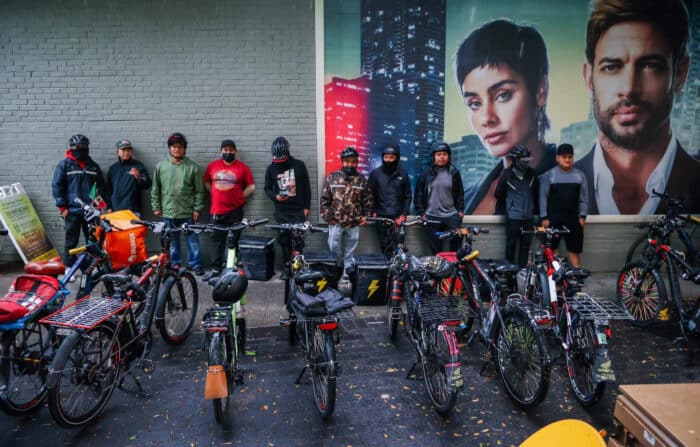
“Streamlining & universally applying regulations makes sense so not just third-party delivery apps but all companies, restaurants, grocery store delivery, and other businesses that utilize micro-mobility devices will operate under the same standards,” said Gold.
“Many New Yorkers rely on safe, energy-efficient modes of transportation like e-bikes to get around, see friends and family, and earn a living,” said Grubhub spokesperson Patrick Burke. “Ensuring their safe use is a citywide issue that requires a citywide solution, and no one industry or sector can address it alone. We welcome the opportunity to continue our work with the city to keep neighborhood streets safe.”
A Doordash spokesperson said it is reviewing the announcement but noted the company “will help [the agency] identify practical and effective solutions so all New York City delivery workers can continue to safely share the city’s streets.”
The move to carve a new department out of existing ones comes as the mayor slashes budgets across city agencies, which he says is necessary due to the financial constraints caused by the arrival of tens of thousands of migrants. In November, the mayor announced agencies would have to cut their budgets by 15% across multiple rounds of “PEGs,” or Program to Eliminate the Gap.
At the end of 2022, DCWP had a vacancy rate of 15.7%, while the rate at DOT was 13.6%, according to City Comptroller Brad Lander. Many vacant positions have been eliminated to save money during PEG rounds, though critics say this depletes agencies’ ability to perform their mandates.
Joshi said that budget matters hadn’t been considered yet for the potential new agency, but said efforts would be made for fiscal prudency. For example, the new agency could share a space for a licensing office with the Taxi & Limousine Commission.
“The crux of this is around the authority,” Joshi said. “Before you get to the dollars.”
Read more: Council Speaker Adams Shakes Up Leadership, Sparking Debate




